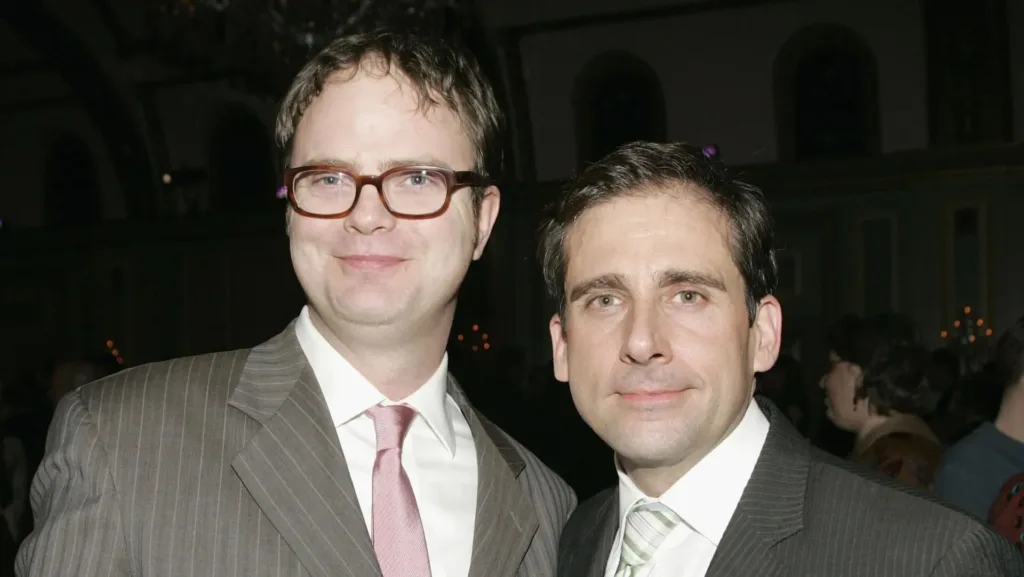Rainn Wilson says The Office entered “a little bit chaotic” phase once Steve Carell walked away in 2011, recalling on the June 19 episode of Josh Peck and Ben Soffer’s Good Guys podcast that writers and actors scrambled to recalibrate a show suddenly without its “comic engine.” The Dwight Schrute actor stressed the turmoil was expected—Carell’s film résumé was exploding—yet still forced the team to hunt for a new tone and de-facto lead during seasons 8 and 9.
Viewers noticed. Average U.S. live audiences slipped from about 7.3 million in Carell’s final run to 5.3 million the following year, according to Nielsen figures compiled by fan archivists. Critics were mixed, and Wilson now concedes the storytelling “struggle” persisted despite headline-grabbing guest bosses like Will Ferrell and James Spader.
Not everyone agrees the post-Michael era faltered. Jenna Fischer recently told listeners of her Office Ladies podcast that the series “stayed strong the whole time,” praising the ensemble’s adaptability. Series developer Greg Daniels has echoed that view in past interviews, arguing the ensemble format gave the sitcom enough depth to survive major exits. Media columnist Mike Schur, a former writer-producer, even suggested this spring that Daniels’ own reduced presence hurt the show more than Carell’s departure.
A decade later The Office remains a streaming powerhouse and will soon spawn a mockumentary-style companion titled The Paper, with Oscar Nuñez confirmed to reprise his accountant role. Wilson, meanwhile, told Entertainment Weekly he is “thrilled the universe lives on,” though he admits any revival must solve the same leadership puzzle left by Carell. As Peacock pushes the franchise forward, Wilson’s candid memories underline how tightly The Office once revolved around a single world-class improviser—and how television can wobble when a star’s career ambitions outgrow the cubicle.
